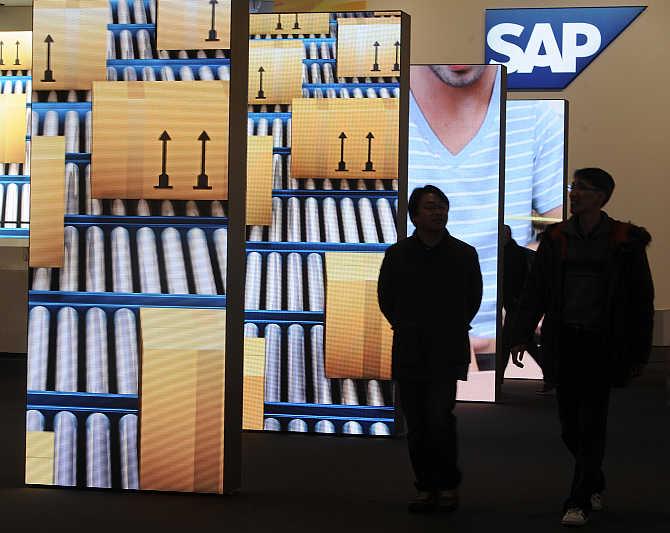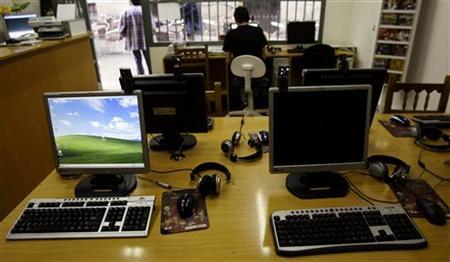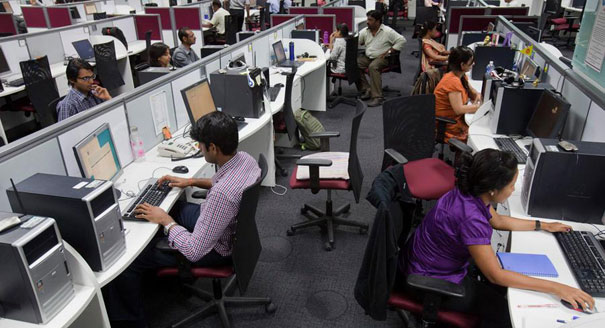 | « Back to article | Print this article |
Top 10 technology trends in India
At a time when most Indian information technology (IT) services companies have seen an uptick in demand for new technologies such as social, media, analytics and cloud (known by the acronym SMAC), research and advisory firm Gartner recently said these are likely to remain the top technology trends and drivers that will be strategic for Indian companies in 2014.
These technologies, along with some others such as virtualisation, Internet of things, and 3D printing, have the potential for significant impact on enterprises in the next three years, Gartner said in its 'India's Top 10 Technology Trends in 2014' report released recently.
Following are Gartner's top 10 strategic trends for Indian companies in 2014, and its observations about the same.
Click NEXT for more...
Top 10 technology trends in India
Business Intelligence (BI) and Analytics
This is the hottest software market in India, fueled by IT prioritisation and expanding business buying centers.
A competitive business environment and economic conditions are also forcing enterprises in India to focus on using fact based decision-making tools to rationalise costs and time for businesses.
Enterprises in India will continue to use BI to be transformative in their approach.
Click NEXT for more...
Top 10 technology trends in India
Mobility Solutions
Mobility in enterprise has created a huge opportunity for IT leaders to reduce costs, increase productivity and enable smooth business transactions.
Swift growth in the prevalence of mobile devices, a decline in their price, and falling data plan costs have the potential to completely transform some business models.
Click NEXT for more...
Top 10 technology trends in India
Cloud Computing
Although still in its infancy in India and other emerging markets, cloud adoption is increasing. Led by infrastructure-as-a-service engagements in the data center, disaster recovery and storage areas, there is a broad range of providers that target large organisations as well as small and medium businesses.
Social Media and Computing
Social media in India has seen exponential growth in the recent past with enterprises using it for customer support and customers using it to offer opinions. A growing number of enterprises used social media to connect with their customers and for marketing campaigns in 2013 and social media is playing a pivotal role in Indian politics with the government and political parties increasingly using it to connect with citizens.
Click NEXT for more...
Top 10 technology trends in India
Machine to Machine (M2M)
The M2M market in India is in a nascent stage but growing rapidly. Indian enterprises driven by demands to improve agility and productivity are evaluating the use of M2M-enabled solutions.
Hosted Virtual Desktop (HVD)
In India, server-based computing, which is also referred as "hosted shared desktop" or "terminal services," is seeing more adoption. More than 80 percent of desktop virtualisation implementations are based on HVD.
Click NEXT for more...
Top 10 technology trends in India
Personal Cloud
Adoption of cloud computing in India is currently limited to the private cloud. Organisations are focused on protecting their applications located in enterprise app stores, as well as the content on employees' personal devices used at work.
The Internet of Things (IOT)
In its early phase of development, enterprises are experimenting with the IoT across a range of sectors, applications, business models and technologies in an attempt to unlock its value.
The IoT delivers tangible value to enterprises through the ability to better utilize remote assets and creates business cases in three key areas - operational technology (OT), digital supply chain and customer interaction.
Click NEXT for more...
Top 10 technology trends in India
Collaboration Technologies
Collaboration technologies (otherwise known as workflow management or team collaboration) consist broadly of real-time electronic meetings, content delivery, desktop and application sharing, text chat, group document markup with electronic whiteboarding, security and remote control.
3D Printing
In India interest levels in 3D printing are slowly picking up and this is reflected in the increased presence of providers in the 3D printing space. Because of the country's large population base, high volumes and low cost requirements, 3D printing has the potential to radically transform design, manufacturing and the supply chain model in India.





